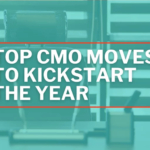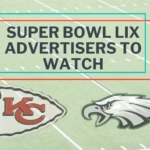
4 Winning Sponsorship Plays to Dominate the 2025 Sports Landscape
The roar of the crowd is back, but the sponsorship game has changed forever. It’s hard to believe that it’s been almost five years since the pandemic first disrupted our lives and industries. Those years reshaped the way brands connect with audiences, throwing the traditional playbook out the window. Today, brands looking to partner with professional sports teams must navigate a sponsorship world transformed by innovation, audience-first strategies, and a newfound focus on flexibility.
When live sports paused, the industry had to think fast. Brands leaned into fan-less events, virtual experiences and digital activations to stay relevant, while sponsorship professionals reimagined strategies to keep teams and audiences connected. The result? A sharper focus on hybrid fan engagement, nimble contracts, and the ability to pivot on a dime. Now, as we truly emerge from this transformative era, it’s clear that the rules of the game are forever changed—and the brands that adapt will own the future. For marketing and sales professionals targeting partnerships with professional sports teams, it’s all about agility, innovation, and delivering what fans want before they even know they want it.
Here are four power plays to help your brand dominate the 2025 sponsorship landscape:
1) Prioritize flexibility in partnerships
Adaptability is king. Game schedules can shift overnight, and the brands that pivot fastest will always win. Build flexibility into your sponsorship agreements—think clauses that allow for creative changes in deliverables or activation methods. Not only will this future-proof your strategy, but it’ll also position your brand as a partner sports organizations want to team up with.
2) Leverage digital and hybrid fan experiences
In-stadium games are back, but the appetite for digital fan engagement is here to stay. Sports fans now expect options—whether that’s live-streamed player interviews, augmented reality experiences, or exclusive behind-the-scenes content. Marketing and sales professionals should work with teams to create activations that extend beyond the stadium. For example, a partnership with a professional basketball team could include a gameday AR filter or exclusive content on social channels to engage fans at home and on-the-go.
3) Invest in meaningful metrics
ROI has never been under more scrutiny. Brands want metrics that matter— impressions are no longer enough. Think fan engagement rates, ticket sales attributed to sponsorships, or app downloads driven by activations. Work closely with teams to define meaningful KPIs and leverage advanced tools to track performance. Then, share those results with confidence. Transparent, data-driven insights build trust and ensure your sponsorships are delivering for both the team and your brand.
4) Center social responsibility in sports partnerships
Today, fans expect brands to do more than advertise—they want to invest in brands that align with their values. Millennials and Gen Z, in particular, are drawn to brands that champion social impact and community values. Align your sponsorship strategy with causes that matter to fans and reflect your brand’s values. Whether it’s partnering with a team’s foundation or promoting sustainability initiatives within the stadium, social responsibility isn’t just a nice-to-have—it’s a must-have.
The sponsorship landscape in professional sports is alive with opportunities for brands ready to adopt the new playbook. By embracing flexibility, tapping into digital fan engagement, delivering clear ROI, and leading with purpose, marketing and sales professionals can craft partnerships that not only navigate today’s challenges but shape tomorrow’s successes.
At Winmo, we’re your ultimate playbook for navigating this new era. From real-time contact intel on sports marketing decision-makers to deep insights into team sponsorship strategies, we’ve got the tools you need to close bigger deals and build partnerships that stick.
The future of sports sponsorship is here. Let’s own it together.





